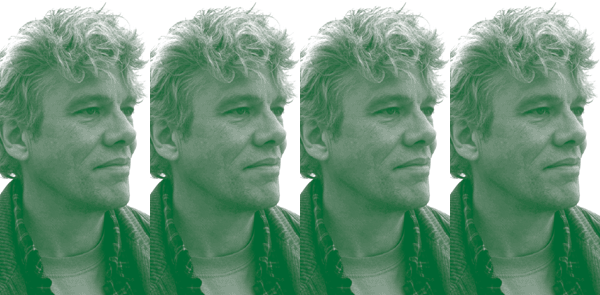Short interview: Lewis Shiner

Lewis Shiner's novels include BLACK & WHITE, the cyberpunk classic FRONTERA, and, most recently, OUTSIDE THE GATES OF EDEN (2019). He’s written about music for the VILLAGE VOICE, PULSE, CRAWDADDY, and others. His short fiction has appeared in SOUTHWEST REVIEW, BLACK CLOCK, and OMNI among others, and has been reprinted in a number of best-of-the-year anthologies. He lives in North Carolina.
1. According to you and apart from the number of words, what is the main difference between a short story and a novel?
J. G. Ballard proved in his “condensed novels” that short fiction can have the same thematic weight and chronological scope as a novel. I myself wrote a condensed novel called “Soldier, Sailor” and later expanded it into my first novel, FRONTERA. So I'm not sure there is a meaningful difference between short stories and novels other than the length. There is a famous story about the US President Abraham Lincoln, where somebody asked him how long a man's legs should be and Lincoln said, “Long enough to reach the ground.” How long should a piece of fiction be? Long enough to tell the story.
2. What's your favorite short story?
I tend to prefer novels to short stories, so I don't read a lot of them. If I'm going to invest time and effort to read about characters, I like to stick with them for a while. That said, there are a few short stories that I really admire. I recently read a story called “Christmas Eve 1953” by the US actor and director Tom Hanks that I thought was outstanding. It deals with two World War II veterans, one damaged physically, the other psychologically. It beautifully evokes that time period and shows how much the 1950s in the US was affected by the war.
Other favorite stories include “The Chrysanthemums” by John Steinbeck, who was my favorite author when I was a teenager, and “The King is Dead” by Walter Tevis, an incredibly suspenseful short story about chess, of all things. All three stories are about the way that characters deal with pain, both physical and emotional.
3. What's your favorite short story written by you?
I guess I would pick Canto MCML. I like all the things that are left unsaid in the story—I never explain where the characters are or what's going on in the rest of the world, yet I think (or at least hope) that there are enough clues that the readers can figure it out for themselves. It's also a very political story, which is increasingly important to me.